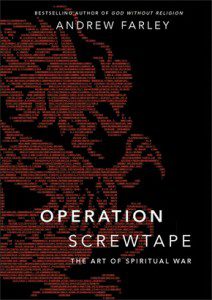 I’m a Sherlockian – hardcore. Not only do I love the stories but I set the bar high for books and films portraying him. Nobody does Sherlock on film like Jeremy Brett, nobody. Basil Rathbone was weaker than broth from a one-legged chicken. Christopher Plummer, so great in so many things, should have let Sherlock pass. Christopher Lee, great as Dracula, zilch as Sherlock. That’s why, when I learned of both Robert Downey Jr.’s and Benedict Cumberbatch’s takes on Sherlock, I stood ready with my prejudices unapologetically cocked and loaded. And I loved them both and wait eagerly for sequels (Downey) and new seasons (Cumberbatch).
I’m a Sherlockian – hardcore. Not only do I love the stories but I set the bar high for books and films portraying him. Nobody does Sherlock on film like Jeremy Brett, nobody. Basil Rathbone was weaker than broth from a one-legged chicken. Christopher Plummer, so great in so many things, should have let Sherlock pass. Christopher Lee, great as Dracula, zilch as Sherlock. That’s why, when I learned of both Robert Downey Jr.’s and Benedict Cumberbatch’s takes on Sherlock, I stood ready with my prejudices unapologetically cocked and loaded. And I loved them both and wait eagerly for sequels (Downey) and new seasons (Cumberbatch).
If anyone could be more loyal than Sherlockians like me, it’s those who devour the writing of C.S. Lewis (I’m one of those, too). There have been parodies and imitators of C.S. Lewis’ The Screwtape Letters, many of them forgettable. But that doesn’t mean we shouldn’t give Operation Screwtape, by Andrew Farley, a look and a shot to stand on its own merits. Like its predecessor, the book describes in detail strategies of the evil one as passed down through the ranks of principalities and powers and implemented both to impede embracing Jesus Christ and to hobble the growth and lives of those who follow Him. The premise describes hidden documents found and decoded releasing this information.
Some literary points here. Andrew borrows a literary device from many missionaries working in dangerous corners of the globe. Key words lie masked in the text; insiders will get the meaning but casual outsiders or prying eyes will not. Missionaries do this to avoid recognition in dangerous settings. Demons do this to avoid excruciatingly painful truth. While the code words for Jesus, the Gospel, and the Cross are clear, I found myself double clutching in some contexts keeping them straight. This may simply come with writing in this kind of form or might just be me. If so, I will kneel in the snow, Andrew, outside your castle (It’s a church history thing. Andrew will get it.) New Christians reading this should do so in close touch with an older Christian or in a group (This would be a good title for a reading group; it bristles with discussion points.) because Andrew tangles with a lot of Scripture at some deeper levels that might speed past younger Christians just reading on their own. I would also like to have a conversation with Andrew, which book reviews don’t allow, as to what extent meanings of Scripture can be said to be only directed to cultural conditions of the time.
On to the good stuff. Using John 10:10 as a chapter framework, Operation Screwtape lays out the evil one’s basic strategies to steal (our influence, security, intimacy, clarity, confidence and celebration), to kill (our contentment, focus, resources, life, holiness, righteousness and discernment) and to destroy (our grace, freedom, funding, enthusiasm, unity, leaders and our message). Andrew pastors and preaches at Ecclesia: Church Without Religion in Lubbock, Texas. He’s in the trenches at a place that seems to be especially effective in touching lives of people who’ve suffered a lot of this stealing, killing and destroying inside the church sometime in their lives. I resonate with that as the church I pastor is a M.A.S.H unit (Think TV show). We’re not pretty and a lot the people with us come with gaping spiritual wounds but are risking hope in Christ’s church one more time. I bet Ecclesia is a lot like this too and this flavors Andrew’s writing. This church, being in Texas, lies within the powerful gravitational field of the Bible belt. (Now let’s talk about cultural background and influence.) The dry side of the Bible belt, its shallow beliefs that neither penetrate thought nor change behavior can both mask destructive behavior and grossly distort the gospel of Jesus Christ.
The late Ruth Graham, wife of Billy, told a story of a pet rabbit she had as a little girl in China. The rabbit died and, after a proper funeral, the family buried it out behind their house. She would go out every day and dig it up “to see how it was getting along.” Finally one day it began to turn green and so she decided to leave it alone. One of his better points involves crippling false guilt. Countless Christians grapple daily with guilt over sins that Jesus Christ has already forgiven. We mull over them, anguish over them, confess them hundreds of times and keep doing it long after they’ve turned green; we can’t leave it alone. Certainly personality types, those deprived of love and victims of abuse seem especially vulnerable to this. The difficulty of forgiving ourselves feeds into it too. We become paralyzed and neurotic, muckraking through our own lives looking for one more thing to beat ourselves up with. When the Bible describes Satan as the “accuser of the brethren”, it hits the mark. He’s good and accusation is one of the best clubs in his bag.
One of the good new books in creative circles is The War of Art. It presses home that creativity doesn’t just bubble up; you have to work, to war through many pitfalls and obstacles. The spiritual life known as Christianity is no different. Mark Buchanan writes, “We must train to be and live christianly and nothing could be further from the mindset of the age.” Andrew Farley pens a good mix of reps and stretching with grace. Work through the C.S. Lewis thing and allow him his own voice and listen for God to whisper through it. Forget C.S. Lewis for a minute. Andrew is no Jeremy Brett. But then, who is?
For more conversation on Operation Screwtape, visit the Patheos Book Club here.
 David Swartz pastors Bethel Baptist Church in Roseville, Michigan. He thinks that jazz is sacred music, that books are better company than most people, and that university towns rock. He blogs at geezeronthequad.com.
David Swartz pastors Bethel Baptist Church in Roseville, Michigan. He thinks that jazz is sacred music, that books are better company than most people, and that university towns rock. He blogs at geezeronthequad.com.













